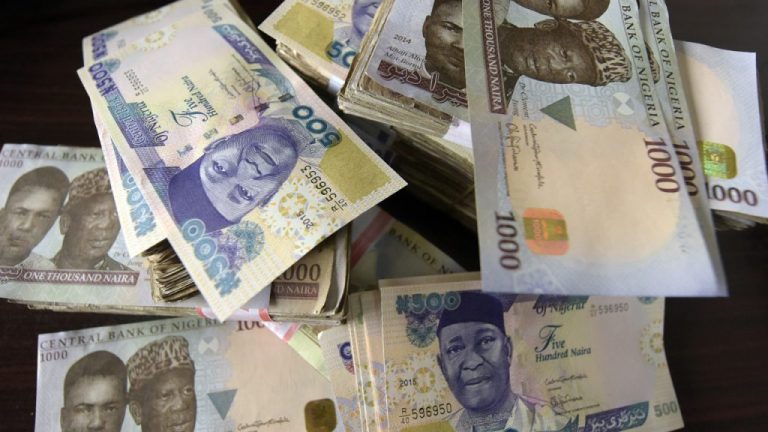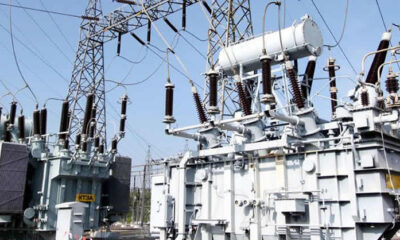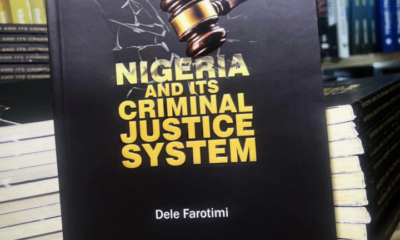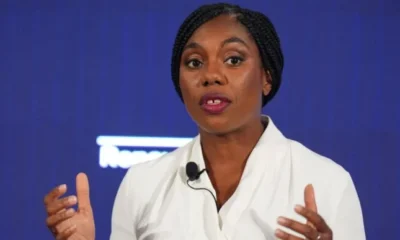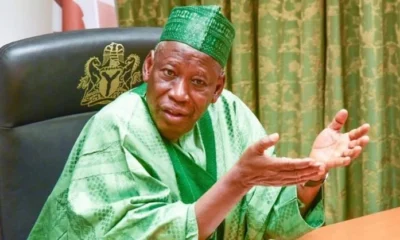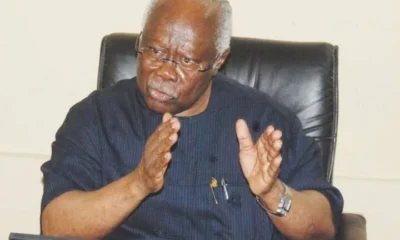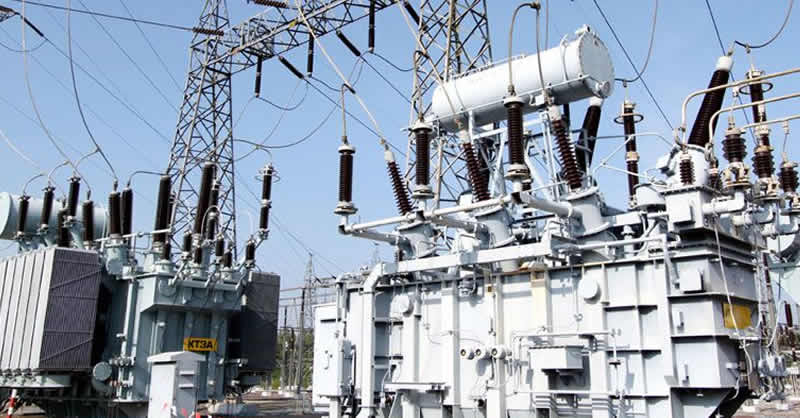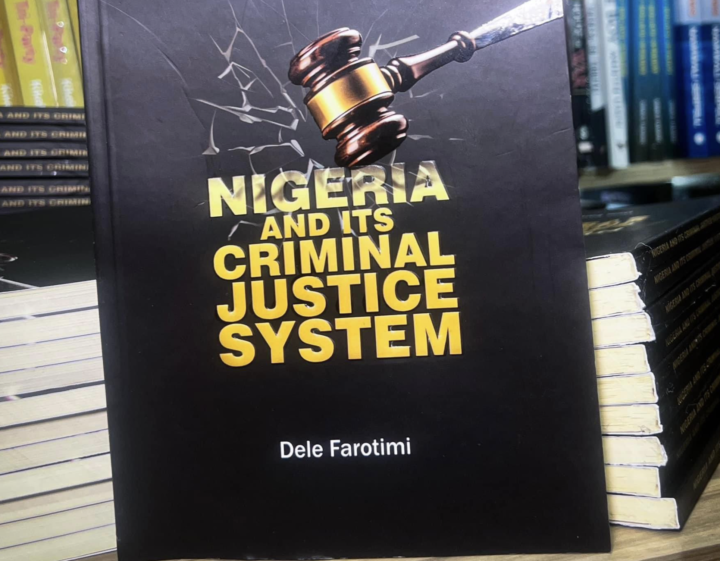Wholesale gas-producing companies have unexpectedly stopped supplying natural gas to power generation companies for electricity production due to the non-payment of debts accrued from previous supplies.
This was revealed in a recent report by The Punch.
Dr. Joy Ogaji, the Chief Executive Officer of the Association of Power Generation Companies, shared this development in an interview (with The Punch) on Wednesday. She emphasized that the gas-producing companies had officially notified all GenCos of the suspension of natural gas supply.
The gas supply was abruptly halted after the Nigerian Midstream and Downstream Petroleum Regulatory Authority (NMDPRA) reportedly directed gas producers to suspend the delivery of natural gas to indebted GenCos until further notice, citing the increasing debts.
This has resulted in a nationwide electricity blackout, severely affecting power generation across the country.
Currently, over 70% of Nigeria’s power is generated by gas-fired plants.
Earlier this year, Minister of Power Adebayo Adelabu announced that the Federal Government would begin paying part of its debts to power generation companies and gas suppliers from April. He also mentioned that he would work with the Central Bank of Nigeria to prioritize foreign exchange allocation for the power sector to enhance generation capacity.
“The Federal Government is now prioritising paying down on the outstanding debts, and I have assured the board and management that effective from April, we will start paying down on debts, as a form of incentive to continue to have them in operation,” he said.
Although the government has paid N205bn of the debt owed to the GenCos in recent months, an ongoing dispute between NMDPRA and gas producers over the collection of the 0.5% wholesale price levy under the Petroleum Industry Act has prompted the suppliers to demand payment of outstanding amounts.
In the interview, Dr. Ogaji stated that all relevant authorities, including the presidency, have been informed of the situation and are awaiting necessary interventions.
She added that the debt, which was around N2tn earlier this year, has now risen to N2.7tn.
“It is no longer a matter of NMDPRA giving a directive. They have already stopped the supply of gas to power-generating companies.
“They (gas suppliers) have halted the supply. They have already informed our GenCos that they are not going to be supplying gas anymore until what is outstanding is settled and it didn’t happen today.
“We have told the Nigerian Electricity Regulatory Commission, they are already aware of the situation. There is nobody who would say they are not aware; the minister is aware, and the presidency is aware.”
“The total debt has now increased to over N2.7tn and you know that 70% of thermal GenCos’ invoice is gas.
“They have been paying a small amount. So, when they pay us nine percent, we just calculate nine percent of our gas invoice and send it to the gas supplier because that is the only way to survive. We are all sharing in the poverty that NBET is giving us.”
The halt in gas supply has disrupted the energy sector, raising concerns about energy shortages and instability in operations nationwide.
On Wednesday, Nigerians were plunged into darkness following another collapse of the national power grid, the 12th time this year.
According to reports, the grid went down at about 1:36 pm on Wednesday. By 2 pm, power generation had dropped to 0.00 megawatts, down from 3,087 MW at 1 pm and a peak of 4,013 MW at 4 am.
In October, the grid collapsed three times within a week, resulting in widespread blackouts that have sparked public concern.
A tweet from the official National Grid account confirmed that the grid collapsed at about 2:09 pm on Wednesday.
“The major grid setback has occurred and the restoration is to commence,” the tweet read.
Distribution companies also issued notices to their customers about the grid failure causing the outages. Jos Disco, in a statement by Head of Corporate Communications, Friday Elijah, said, “The current outage being experienced within our franchise states is a result of loss of power supply from the national grid. The loss of power supply from the national grid occurred this afternoon at about 1333 hours of today, Wednesday, 11th December 2024, hence the loss of power supply on all our feeders.
“We hope to restore normal power supply to our esteemed customers as soon as the grid supply is restored to normalcy. Thank you for your patience and understanding as we strive to serve you better.”
Similarly, Abuja Disco stated, “We wish to inform you that a system disturbance occurred on the national grid at 1:32 pm today (Wednesday) causing a power outage across our franchise areas.
“While gradual restoration of power supply has commenced, be assured that we are coordinating closely with relevant stakeholders to restore power fully as soon as the grid is stabilized.”
Kunle Olubiyo, President of the Nigeria Consumer Protection Network, called for an independent forensic audit of the gas suppliers’ debt claims, questioning their accuracy and relevance to the sector’s realities.
He further urged the government to fully privatize the power sector to eliminate inefficiencies and not serve as a scapegoat for sector failures.
Olubiyo (told The Punch), “What we need to do is adequately interrogate these claims; once they are checked, audited, and verified, then we can see what is going on in the sector. It’s a buying and selling market.
“The model currently being deployed at Azura is what we are supposed to have for all GenCos ab initio. When the government offered the power sector for privatisation (upstream and downstream), there was the provision of financial instruments such as letters of credit to help in the event of non-compliance with the market rules and obligations. That letter rule could be used to create some level of discipline, but players in the sector cut them off and preferred to get product on credit without a plan to pay back. The market should be administered like a business so that if there are infractions, you can call the penalty clauses and instruments. If you pledge an amount of money that can translate to the failure of the sector, there have to be punishments.”
“The Discos are taking supply in the value chain without any form of collateralization. It’s not done anywhere. The sector is only enjoying the goodwill of some personalities in the sector, who have a name and they are bankable. But this goodwill has also been overdrawn, so the earlier we face the facts, the better for us.”
He added, “I am sure that if we do proper follow-up and forensic checks, it is likely to find out that 75 percent of the bill we have been paying on subsidy by the federal government is public sector funded, just like the oil sector; nobody would want to reveal what has been over-bloated in the past. The danger is that the continued mismanagement of the public and private sector models is giving room for corruption because we can’t see in an actual sense the claims from all players are synergized corruption that is, in most cases, bloated.”
“It’s not impossible that some of these classes might be inflated. Government continued equity in the power sector is giving room for corruption. The government should not bear the brunt of challenges in any sector because some persons will latch onto it and begin to feed their pockets. The government should let go of the power sector and concentrate on the underserved and unreached persons to close the gap.”
Meanwhile, the Nigerian Midstream and Downstream Petroleum Regulatory Authority has denied instructing the halt in gas supply to power-generating companies.
In a statement signed by its Public Affairs Unit, the NMDPRA stated, “The attention of the NMDPRA has been drawn to a news publication with a spurious claim that the Authority has directed that Gas Supply to GENCOs be halted and instructed wholesale gas suppliers to stop the further supply of gas to companies due to failure in payment obligations.
“The NMDPRA wishes to state categorically that this report is false and completely unfounded. It has no bearing on the information shared at a recent stakeholders’ engagement held in Lagos between the Authority, the OPTS, IPPG, and other stakeholders in the oil and gas industry.”
The statement further clarified that the meeting was organized “to sensitise stakeholders on the requirements, opportunities, and benefits associated with the implementation of wholesale supply licenses as provided by sections 142 and 197 of the Petroleum Industry Act 2021. It was a follow-up to an earlier stakeholder engagement held at the NMDPRA corporate headquarters in Abuja on November 27, 2024.”
“The Authority wishes to reassure all our stakeholders and indeed the general public that at no time was the false statement made at that event and anywhere else, and are advised to completely disregard the publication as every effort is being made to ensure that the supply and distribution of natural gas and petroleum products to end users is seamless and unabated as we head into the festive season and indeed all through the coming year 2025.”
Credit: The Punch

 BIG STORY1 day ago
BIG STORY1 day ago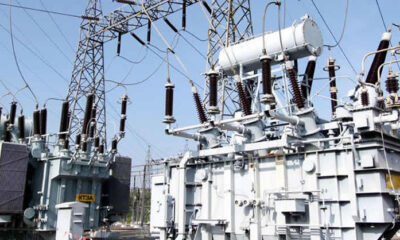
 BIG STORY22 hours ago
BIG STORY22 hours ago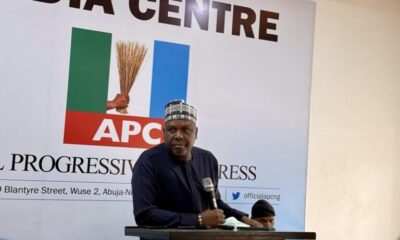
 BIG STORY18 hours ago
BIG STORY18 hours ago
 BIG STORY2 days ago
BIG STORY2 days ago
 BIG STORY1 day ago
BIG STORY1 day ago
 BIG STORY1 day ago
BIG STORY1 day ago
 BIG STORY2 days ago
BIG STORY2 days ago
 BIG STORY2 days ago
BIG STORY2 days ago




